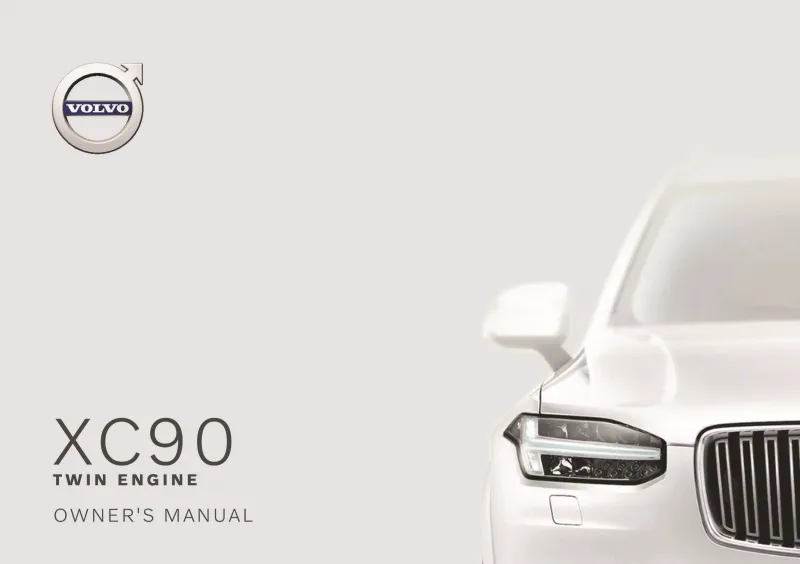2020 Volvo Xc90 Twin Engine Owner's Manual

Table of Contents
2020 Volvo Xc90 Twin Engine Overview
Introduction
The 2020 Volvo XC90 Twin Engine represents a harmonious blend of luxury, technology, and ecological responsibility. As part of Volvo's commitment to sustainability, this plug-in hybrid SUV boasts an elegant design coupled with advanced engineering, making it an ideal choice for discerning drivers who value both performance and environmental awareness. With a spacious interior and cutting-edge safety features, the XC90 Twin Engine sets a new standard for family-friendly SUVs.
Powertrains
The XC90 Twin Engine is powered by a dynamic 2.0-liter four-cylinder engine, featuring both a turbocharger and a supercharger, delivering an impressive 313 horsepower. Complementing this traditional powertrain is an electric motor, adding an additional 87 horsepower and providing an all-electric range of approximately 18 miles. This formidable combination enables a seamless transition between electric and gasoline power, while also enhancing efficiency. With an 8-speed automatic transmission, the XC90 Twin Engine ensures a smooth and responsive driving experience across various terrains.
Trims
The 2020 XC90 Twin Engine is available in three main trims—Momentum, R-Design, and Inscription. The Momentum trim focuses on understated elegance, featuring leather upholstery, a panoramic sunroof, and advanced driver assistance systems. The R-Design adds a sporty edge with unique styling cues, sport seats, and upgraded alloy wheels. Meanwhile, the Inscription trim embraces luxury with premium materials, ambient lighting, and an enhanced sound system, offering an upscale driving experience that redefines notions of comfort.
Features
Loaded with cutting-edge features, the XC90 Twin Engine offers a customizable 12.3-inch digital driver display, a responsive 9-inch Sensus infotainment system, and a state-of-the-art audio system. Advanced safety technologies, such as Pilot Assist and City Safety, work collaboratively to enhance driver confidence, making every journey safer. Additionally, the spacious interior accommodates up to seven passengers, ensuring ample room for family and friends, while the versatile cargo space allows for a variety of lifestyle needs.
Owner's Manual
The owner's manual for the 2020 Volvo XC90 Twin Engine serves as an invaluable resource, detailing every aspect of the vehicle's operation, maintenance schedules, and safety features. Clear diagrams, step-by-step instructions, and comprehensive guides on how to utilize the hybrid powertrain and infotainment system make it an indispensable companion for any XC90 owner. Whether you are looking to enhance your driving experience or ensure optimal vehicle care, the owner's manual provides essential insights into enjoying your luxury SUV to its fullest.
User manual download
The Volvo Xc90 Twin Engine owner manual for the 2020 model year is to be found in PDF downloadable format on this page. The owner manual for the model year 2020 is free and in English, but the repair manuals are usually not easy to get and may cost more.
Manual Questions
Fill the form below and someone will help you!
